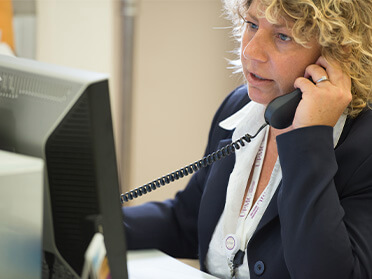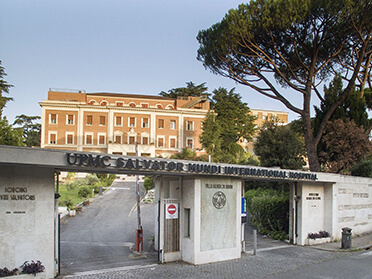UPMC Smoking Cessation Center at UPMC Salvator Mundi International Hospital
We offer a complete program to accompany the patient through the difficult process of smoking cessation. It arises from the study and adaptation of the model used successfully in the U.S. by UPMC.
Who are the Services of the Anti-Smoking Center Suitable for?
The program is not aimed only at those with smoking-related conditions, but to all smokers. Whether they are ready to quit smoking or are not yet fully motivated, they can find the right support with UPMC, thanks to the advice and support of our dedicated team.
The Smoking Cessation Center for Tobacco Treatment also acts as a support for people who have independently quit smoking, but find it difficult to remain abstinent, manage withdrawal symptoms, or suffer from relapses. Our program accompanies the smoker, and former smoker, in all stages of preparation, cessation and maintenance of cessation.
Most smokers try to quit on their own or rely on methods that have little or no scientific evidence. This is because they often consider smoking a habit that they can quit at any time. Tobacco addiction, however, is a real addiction that needs to addressed with tenacity. At our Centre you can do it together with our experts, following a scientific method, which will also help you in the management of relapses, and up to the gradual and complete abandonment of addiction.
The treatment path is standardized and personalized to provide targeted and individualized interventions.
Performance and Examinations of the Smoking Cessation Center
- Information
- Counselling
- First specialist and diagnostic visit: On the initial visit, we measure the dependence on nicotine (administration of the Fagerström test) and the degree of motivation to quit smoking (specific test). Using spirometry, we also measure lung function and a measurement of carbon monoxide (CO) exhaled. We conduct a thorough and careful physical evaluation, in particular of the state of health of the lungs, but also of other organs that are potentially damaged by smoking.
- Periodic meetings for the continuous monitoring of the program and maintenance of motivational support.
- Pharmacological treatment (when appropriate): Medication for the treatment of smoking can reduce the malaise and mood swings that often occur in the first few weeks after cessation. Research has shown that using a smoking cessation drug in conjunction with a behavioral treatment program can increase the likelihood of quitting up to six-fold.
- Follow-up and maintenance of smoking cessation regime.
Choose a healthy lifestyle, protect yourself and those around you
The benefits of quitting smoking:
- Heart rate and blood pressure decrease within 20 minutes.
- Within 12 hours, the level of carbon monoxide in the blood decreases and returns to normal levels.
- Blood circulation improves, as does lung function within 2-12 weeks.
- Cough and shortness of breath decrease within 1-9 months.
- Within a year, the risk of heart attack becomes half that of a smoker.
- Within 5-15 years the risk of stroke becomes equal to that of a non-smoker.
- Within 10 years, the risk of lung cancer decreases by up to half and the risk of cancers of the mouth, throat, esophagus, bladder, cervix and pancreas are also reduced.
- Within 15 years, the risk of heart attack becomes equal to that of a non-smoker.
- Stopping smoking reduces the risk of impotence, having difficulty conceiving, suffering a miscarriage or having a premature or low birth weight baby.
- Quitting smoking is also highly important for those who have already developed smoking-related diseases. People who quit smoking after having a heart attack reduce the likelihood of having another attack by 50%.
- Protect your loved ones from second-hand smoke, for example by reducing the risk of many smoke exposure diseases in children, such as respiratory diseases such as asthma, and ear infections (otitis).
Towards a Smoke Free Life
At the UPMC Salvator Mundi International Hospital, we offer a guide (Italian only) to a smoke-free life which also includes a journal to track your progress. Download your copy (PDF).

We offer medical services and services on a private basis or in agreement with the main insurance companies. Some of our services are also affiliated with the National Health System.
For more information on active agreements, visit:

